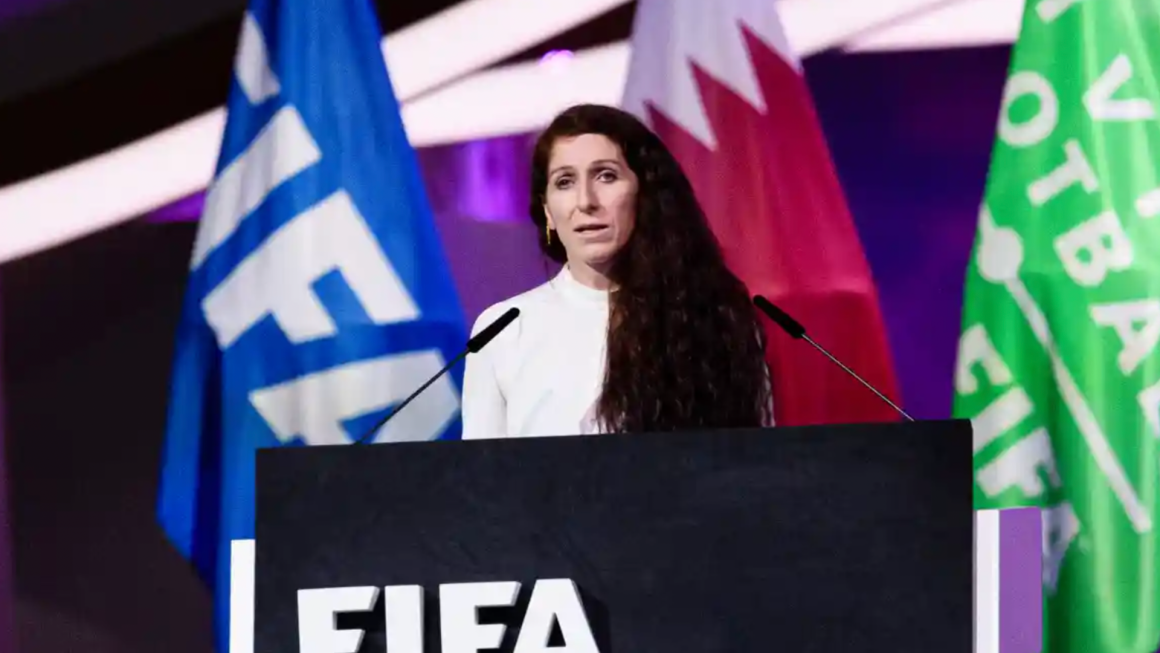The Norwegian official made headlines after criticising World Cup 2022’s host nation Qatar in a speech in Doha in March of last year.
The international governing body of football, FIFA, has come under fire by Norwegian football chief Lise Klaveness, who said Thursday that it “has a responsibility to deliver the legacy it said it would” on alleged human rights issues in Qatar following the World Cup 2022.
“It is not there yet,” Klaveness said.
Speaking from Doha, Klaveness told BBC Sport that Qatar “pushed some very progressive changes” in the treatment of migrant workers, but she also flagged a “struggle with implementation.”
Klaveness met with workers, authorities, and NGO representatives while in Doha.
“For now, we see that FIFA has not really leaned in and engaged in really walking the walk on lifting human rights [to being a prerequisite for hosting] World Cups,” Klaveness also said.
In response, FIFA told BBC Sport said that its human rights and social responsibility sub-committee is conducting an independent assessment to ensure compliance with its human rights responsibilities.
Klaveness made headlines after criticising World Cup host nation Qatar in a speech in Doha March of last year.
“In 2010 World Cups were awarded by FIFA in unacceptable ways with unacceptable consequences. Human rights, equality and democracy – the core interests of football – were not in the starting XI,” she said during a FIFA meeting in Doha in March 2022 in the lead up to the World Cup finals draw.
Qatar announced major systemic reforms since it won the bid to host the World Cup back in 2010, working together with the International Labor Organization, which set up an office in Doha in 2018, to push for these changes.
Some of these reforms include, more protection for workers, a minimum wage, and the dismantling of the controversial ‘kafala’ system.
“It is important that FIFA and football delivers on the promises we made. We’re not yet there,” Klaveness also told the BBC, after reviewing issues such as wage theft, establishing a permanent ILO office, and other human rights related issues.
Separately, on November 16, an Amnesty International report said the legacy for migrant workers in the Gulf nation was in “serious peril.”
“Qatar’s continuing failure to remedy abuses faced by migrant workers and adequately protect them from labour exploitation is tainting the legacy of the FIFA men’s World Cup one year on,” Amnesty said.
Doha said it has further improved its labour system since the end of the historic 2022 FIFA World Cup. “Qatar has further strengthened its labour system since the end of the tournament. Existing reforms continue to be fully implemented. Between January and August 2023, over 153,000 workers successfully transferred to new employers,” Qatar’s International Media Office (IMO) said in a statement to Doha News on November 19.
“The World Cup accelerated labour reforms in Qatar, creating a significant and lasting tournament legacy. Qatar now leads the region on workers’ rights and labour reforms, setting an example for other countries on how a system can be successfully overhauled,” Qatar’s IMO also said.
“The commitment to strengthen Qatar’s labour system and safeguard workers’ rights was never an initiative tied to the World Cup and was always intended to continue long after the tournament ended,” the media office told Doha News.
Qatar’s IMO also went on to highlight Qatar’s efforts in its labour reforms, including the introduction of the region’s first non-discriminatory minimum wage, 97% of salaries protected through the Wage Protection System and the removal of job change barriers.
The list of accomplishments included: “A simplified complaints mechanism and easier access to justice, stricter enforcement including a crackdown on the payment of illegal recruitment fees, increased awareness of workers’ rights, region-leading health and safety standards on-site and in accommodations, and regular health screenings to identify underlying conditions,” the IMO told Doha News.
